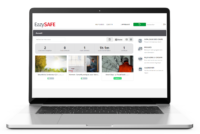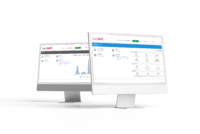Effective Communication Skills for the EHS Professional

GEMMA COLLINS DOYLE
EHS Consultant
EazySAFE
Having been an EHS professional for over 17 years, I can safely say (pardon the pun!), that I was underprepared for the variety of communication skills that I would need to draw on every day, just to keep the wheels of EHS turning within a company! Call me naïve or idealistic, but I really thought everyone was going to care as much about EHS as me. I learned pretty quickly, that this was not going to be the case! I quickly realised that one of the greatest skills I could hone in on was communication and how to do it effectively.
Some of us who fill the roles of EHS within companies, may have fallen into the role by natural succession, others actually chose it as a career! Either way, a lot of the essential skills that are needed to lead EHS in any company are learned on the job, communication being one of them.
So, you’ve got your brand new degree, you know your legislation inside out, you can quote COP’s and you can’t wait to get your teeth stuck into all those risk assessments. But have you thought about how you are going to communicate all this wonderful information to your customers? You may not consider yourself a sales person, but believe me; you will be selling EHS every day of your career! Most EHS professionals that are starting out, will be perfectly capable of communicating with their EHS peers, but not so comfortable when doing the same with their customers like reps, employees, production/site managers, contractors and general management. Being the champion of EHS within your organisation, does not mean you are the boss or have sole responsibility in this area. You are in fact, part of a team, an EHS team, as is everyone else in the company and it’s your job to communicate the very important role to them. Here are a few effective communication skills that are crucial to all EHS professionals:
Listening
I mean really listening, actively listening if you will. Listening is critical to our ability to influence change. Listening is not a passive activity; it is actually a dialogue, not a monologue. How can we know what our customer needs, wants or is trying to get across, if we don’t listen? It’s often so easy to hear past what a person is really saying and what you want to hear.
Influencing
Let’s be honest, by the time you retire from the realm of EHS, you are going to be an expert in the area of influencing! One minute you are going to be selling the importance of wearing PPE to employees on the floor, in the next hour you could be trying to convince the CEO why you need to continue investing in the company EHS management programme.
People Skills
One of my favourites! I really think that you have to be a true people person to get the best out of this career. Without it, you will be flying solo. To be honest, if you wanted to study and work in this area, you must have a genuine empathy for humankind and for the environment. Genuine empathy (not sympathy) for your fellow employees is what is going to drive you to do your utmost to help protect them. It’s about getting out there and meeting people in every area, seeing them in their workplace, learning from them what the issues are. Being able to converse with them and use the time spent together to build a picture of their priorities.
Written Skills
There is a certain side of EHS where sometimes I think you need a PR manager! There is always so much to consider before you start writing up your latest newsletter or a monthly update to managers. Every topic can be sensitive and every audience different. It is critical that you have the writing skills to pull it off every time, otherwise you are wasting your time and it will be an opportunity lost.
Verbal Skills
Being able to get your point across and influence in the best possible way. It is important that you are able to verbalise in a clear, concise and informative way. Make sure you are showing the benefits to your customer, that you are speaking their language. Keep it simple and to the point. You will need to be able to use a variety of methods to talk to people about difficult EHS issues, so that you can help them improve their safety habits.
Interaction with Senior Management
It is crucial for the success of any EHS programme that you are able to converse with and influence senior management. Getting senior management to buy into a new safety initiative is integral. Alternatively, you must be able to give them the best advice available if they feel that there are EHS issues that they want to promote.
The above are the main communication skills I feel an excellent EHS professional should have. They may not come naturally, but they are for sure worth working on. Pretty broad ranging, I’m sure you would agree. Not a role for the faint hearted, almost a vocation some would say. To all you EHS professionals out there, you are super heroes in disguise; just remember the reason why you wanted to do this job and let that be your guiding light when the going gets tough! You’re doing a great job.
We help companies to prevent injuries by making safe behaviour and workplace conditions part of their work culture.

Discover our Safety Training Platform
Train your employees anytime, anywhere with our environmental, health, safety and wellness training platform.

TAILORED TRAINING
Discover our safety training courses and ehs onboardings, which can be customised and offered in several languages.

SAFETY MANAGEMENT
Ensure the distribution of your safety policy by training your permanent, temporary or seasonal staff.

GLOBAL MONITORING
Simplify the management of your safety policy thanks to the numerous dashboards and training reports.
